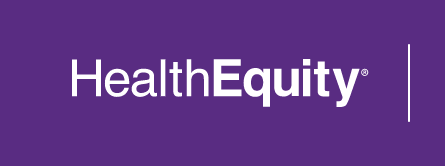I’m back with more information on the timing for the end of pandemic-era regulations. Last week I wrote about new guidance on the end of the Public Health Emergency (PHE) and National Emergency (NE) periods. At that time, the official termination date was uncertain. Fortunately, there is now clarity—July 10, 2023, is the end of the emergency measures. Keep reading to learn what’s known and what might be coming.
Save your spot at our upcoming webinar
Feeling overwhelmed by the deluge of information on the PHE and NE? You’re not alone. That’s why we’re hosting a webinar to run through the information you need to be prepared for the future changes. Register now for Everything old is new again: How to navigate the end of COVID-19 benefits regulations. Registration is free and we’ll reserve time to answer questions.
Here’s what you need to know about the termination of the National Emergency
On January 30, 2023, the White House announced its plans to let the COVID-19 PHE and NE periods expire on May 11, 2023. However, on March 29, 2023, the U.S. Senate passed H.J. Res. 7, a joint resolution proclaiming that the National Emergency declaration issued by President Trump on March 13, 2020, is “hereby terminated.” President Biden signed this into law on April 10, 2023, officially terminating the NE as of that date.
More information on the timing
The Department of Labor (DOL) commented, informally, that, consistent with the March 29, 2023 “FAQs about Families First Coronavirus Response Act, Coronavirus Aid, Relief, and Economic Security Act, and Health Insurance Portability and Accountability Act Implementation Part 58,” the Outbreak Period will end on July 10, 2023, which is 60 days after May 11, 2023 (the date announced by the DOL, Treasury, and Internal Revenue Service [IRS], [the “Agencies’], in FAQs Part 58).
This is consistent with the verbiage of the “Final Rule: Extension of Certain Timeframes for Employee Benefit Plans, Participants, and Beneficiaries Affected by the COVID-19 Outbreak” [29 CFR Parts 2560 and 2590; 26 CFR Part 54, 85 Fed. Reg. 26351 (May 4, 2020)]: “Subject to the statutory duration limitation in ERISA section 518 and Code section 7508A, all group health plans … subject to ERISA or the Code must disregard the period from March 1, 2020 until sixty (60) days after the announced end of the National Emergency or such other date announced by the Agencies in a future notice (the “Outbreak Period”) for all plan participants, beneficiaries, qualified beneficiaries, or claimants wherever located…” (emphasis added).
Now that the NE has ended, the Agencies have issued FAQs, and the DOL has informally commented referring back to these FAQs for purposes of establishing the end of the deadline relief, it appears the end of the Outbreak Period is confirmed as July 10, 2023 (the date that is 60 days from May 11, 2023, as stated in the FAQs, Part 58). This means that, as of July 11, 2023, the suspended deadlines (e.g., for COBRA election and premium payments, reimbursement account claim filing deadlines) are expected to resume pre-COVID relief calculations.
Stay tuned for any additional information
I’m hopeful the Agencies will provide formal, written guidance confirming July 10, 2023, as the Outbreak Period end date. Know that your HealthEquity Compliance Team continues to monitor this evolving situation. I’ll provide further updates if the Agencies release new guidance.
As always, we strongly encourage employers and plan sponsors to consult competent legal or benefits counsel for all guidance on how the actions apply in their circumstances.
PS: I look forward to seeing you at the webinar.
Nothing in this communication is intended as legal, tax, financial or medical advice. We assume no liability whatsoever in connection with its use, nor are these comments directed to specific situations. Readers of this content should consult qualified legal benefits counsel or tax professionals for advice with respect to their circumstances.



